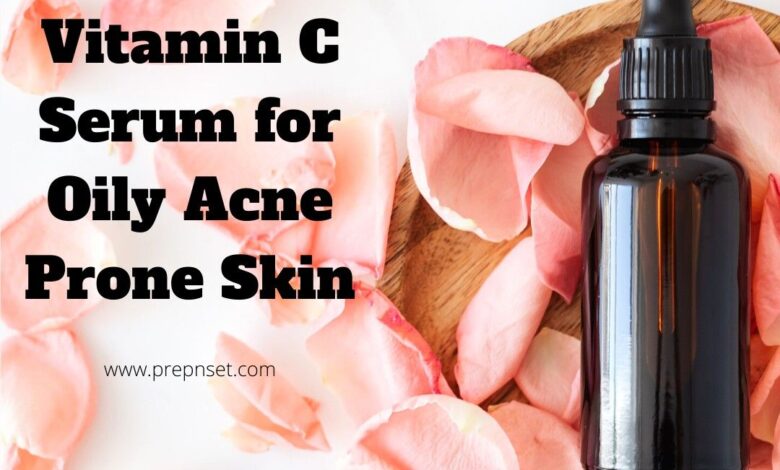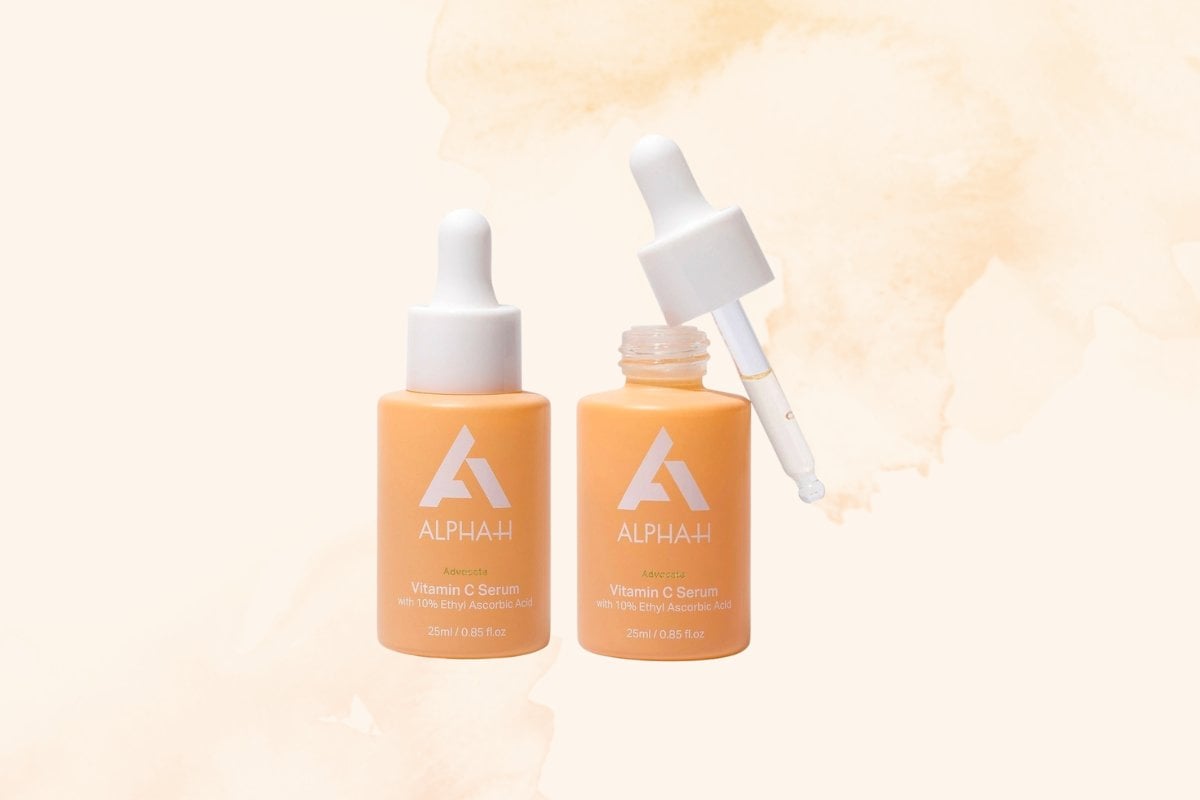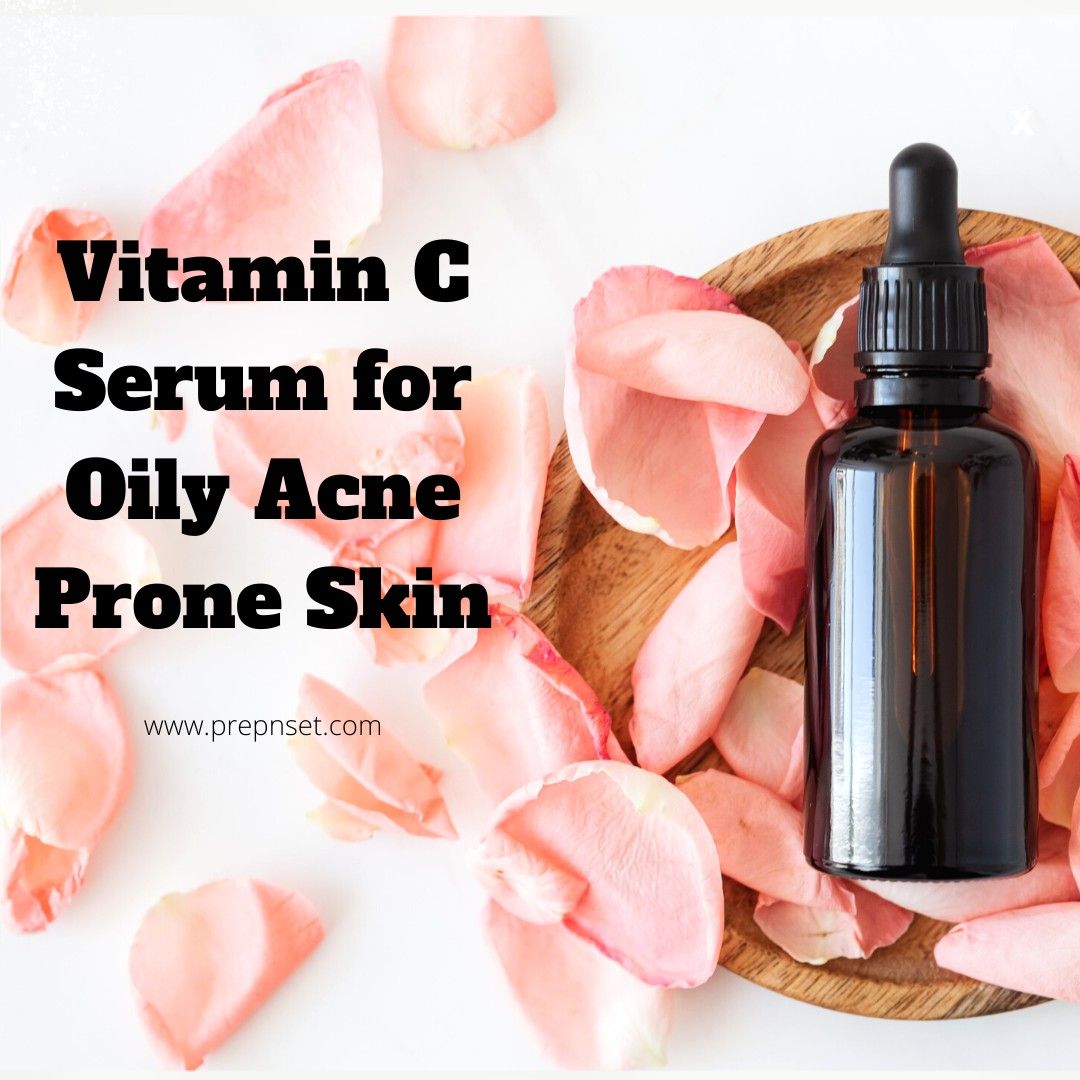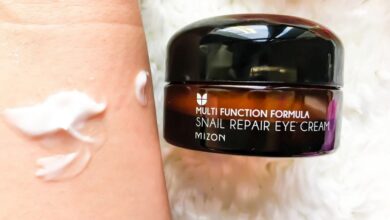
Best vitamin C serum is a game-changer for your skin! This in-depth exploration delves into the world of vitamin C serums, covering everything from the different types and their benefits to the best ways to incorporate them into your routine. We’ll also discuss crucial factors to consider when choosing a serum and present top-rated options from reputable brands.
Vitamin C serums are a popular skincare choice due to their impressive array of benefits. From boosting collagen production to protecting against environmental damage, these serums can significantly improve your skin’s health and appearance. This guide will provide a comprehensive overview, empowering you to make informed decisions about your skincare regimen.
Introduction to Vitamin C Serums
Vitamin C serums have surged in popularity as a skincare essential, promising a range of benefits for skin health and appearance. These lightweight formulas deliver potent concentrations of vitamin C directly to the skin, combating various concerns like hyperpigmentation, fine lines, and uneven texture. Their effectiveness hinges on the specific form of vitamin C used, as different forms react differently with the skin.Vitamin C is a powerful antioxidant, protecting skin cells from damage caused by free radicals.
This protection helps to reduce the appearance of wrinkles and fine lines, while also promoting collagen production, a key protein that keeps skin firm and elastic. This antioxidant effect also helps in brightening the skin by reducing the appearance of dark spots and uneven skin tone.
Different Forms of Vitamin C
Various forms of vitamin C exist, each with its own characteristics. Understanding these differences is crucial for selecting the most suitable serum for individual skin needs. Common forms include L-ascorbic acid, magnesium ascorbyl phosphate, and sodium ascorbyl phosphate. L-ascorbic acid is the most potent form of vitamin C, but it can be unstable and irritating to some skin types.
Other forms, like magnesium ascorbyl phosphate, are often more stable and less irritating, but may not deliver the same level of efficacy.
Application Methods
Proper application is essential for maximizing the benefits of vitamin C serums. Apply a small amount of serum to cleansed skin, ideally in the morning. Vitamin C serums are best used in the morning as they work best with sun protection. Pat gently into the skin until absorbed. Some people may experience slight tingling or redness, which usually subsides with continued use.
Comparison of Vitamin C Serum Forms
| Vitamin C Form | Pros | Cons |
|---|---|---|
| L-Ascorbic Acid | High potency, effective antioxidant, promotes collagen production | Can be unstable, prone to oxidation, potentially irritating to sensitive skin, needs to be stored in a cool, dark place |
| Magnesium Ascorbyl Phosphate | More stable than L-ascorbic acid, less irritating, suitable for sensitive skin | Lower potency compared to L-Ascorbic acid, may not provide the same level of results for all skin concerns |
| Sodium Ascorbyl Phosphate | More stable than L-Ascorbic acid, less irritating, suitable for sensitive skin | Lower potency compared to L-Ascorbic acid, may not provide the same level of results for all skin concerns |
Key Benefits of Using Vitamin C Serums
Vitamin C serums have exploded in popularity, and for good reason. Their potent antioxidant properties and ability to stimulate collagen production make them a valuable addition to any skincare routine. This deeper dive into the key benefits will highlight why vitamin C serums are so effective and how they can improve your skin’s health and appearance.Vitamin C, a powerful antioxidant, is known for its ability to combat free radical damage and promote healthy skin cell turnover.
This translates to a variety of positive effects on the skin, from brightening and anti-aging to protecting against environmental stressors. Understanding these benefits can help you choose the right serum and maximize its effectiveness.
Anti-Aging Effects
Vitamin C’s anti-aging properties stem from its ability to stimulate collagen production. Collagen is a crucial protein that provides structure and support to the skin, keeping it firm and elastic. As we age, collagen production naturally slows down, leading to wrinkles and sagging skin. Vitamin C, acting as a potent catalyst, helps to jumpstart collagen synthesis, resulting in a more youthful, toned complexion.
Clinical studies have shown that consistent use of vitamin C serums can visibly reduce the appearance of fine lines and wrinkles, while also improving skin elasticity and firmness.
Brightening Effects
Vitamin C serums are also effective at brightening the skin. Their antioxidant properties help to neutralize free radicals that can cause hyperpigmentation, including sunspots and age spots. Vitamin C also promotes even skin tone by reducing the appearance of dark spots and discoloration. By stimulating cellular turnover and promoting a more even skin tone, vitamin C can lead to a more radiant and luminous complexion.
Antioxidant Protection
The skin is constantly exposed to environmental aggressors like UV radiation, pollution, and harsh weather conditions. These environmental factors can lead to free radical damage, which can cause premature aging and skin damage. Vitamin C serums act as a powerful shield against these external aggressors. Their antioxidant properties neutralize free radicals, preventing them from causing oxidative stress and damage to the skin’s cells.
This protection helps to maintain skin health and resilience, minimizing the visible signs of aging and environmental damage.
Collagen Production Stimulation
Vitamin C plays a critical role in the production of collagen, the essential protein that gives skin its firmness and elasticity. The serum helps the body produce more collagen, which is crucial for maintaining a youthful and healthy complexion. By increasing collagen synthesis, vitamin C helps to improve skin firmness and reduce the appearance of wrinkles and sagging skin.
Vitamin C acts as a vital co-factor in the synthesis of collagen, helping to keep the skin’s support structure strong and resilient.
Impact on Hyperpigmentation and Acne
Vitamin C can help reduce the appearance of hyperpigmentation, such as sunspots and age spots. Its antioxidant properties help to neutralize free radicals, which can contribute to the development of these blemishes. In some cases, vitamin C can also aid in the treatment of acne. By promoting healthy skin cell turnover, vitamin C may help prevent the formation of new blemishes and reduce the appearance of existing ones.
Studies suggest that vitamin C’s anti-inflammatory properties might play a role in controlling acne breakouts, particularly in cases where oxidative stress contributes to the inflammatory response.
Factors to Consider When Choosing a Vitamin C Serum
Choosing the right vitamin C serum can be a game-changer for your skin. However, not all vitamin C serums are created equal. Understanding the key factors, like skin type compatibility, concentration, stability, and potential ingredients, is crucial for maximizing your serum’s effectiveness and minimizing potential issues.
Skin Type Compatibility
Vitamin C serums can be beneficial for most skin types, but their effectiveness and potential for irritation can vary depending on individual skin sensitivities. For example, those with sensitive skin might find higher concentrations of vitamin C irritating. Understanding your skin’s unique needs and reactions is paramount. Consider patch testing before applying the serum to your entire face, especially if you have a history of skin sensitivities or allergies.
This allows you to assess how your skin reacts to the product before widespread use.
Vitamin C Concentration
The concentration of vitamin C in a serum significantly impacts its potential effects. Lower concentrations, typically around 8-10%, are generally well-tolerated and suitable for daily use. Higher concentrations, like 15-20%, can offer more potent results but may be more irritating to sensitive skin. It’s important to gradually introduce higher concentrations to allow your skin to adapt. Starting with a lower concentration and gradually increasing it if needed can minimize potential irritation.
For example, if you have oily skin that’s accustomed to products with active ingredients, a higher concentration may be appropriate after testing with a lower one.
Serum Stability
The stability of vitamin C is crucial for its effectiveness. Vitamin C is prone to oxidation, meaning it loses its potency when exposed to air, light, and heat. Look for serums packaged in dark bottles to protect the vitamin C from light degradation. Ideally, the serum should be formulated with antioxidants and preservatives to maintain its integrity and efficacy.
Understanding the stability of the serum is key, as it dictates how long the product retains its potency and effectiveness. Products with poor stability may not provide the intended benefits over time.
Ingredients to Avoid or Look For
Certain ingredients can negatively interact with vitamin C or exacerbate skin sensitivities. Avoid serums containing harsh chemicals or fragrances. Look for formulas that contain additional antioxidants, such as ferulic acid or vitamin E, to enhance vitamin C’s stability and effectiveness. Furthermore, ingredients like sulfates or harsh exfoliants should be avoided as they may be irritating or disrupt the skin’s protective barrier.
Consider the potential synergistic effects of other ingredients when selecting a vitamin C serum.
Table of Suitable Vitamin C Serum Concentrations for Different Skin Types
| Skin Type | Suitable Vitamin C Concentration | Considerations |
|---|---|---|
| Sensitive Skin | 8-10% | Start with a lower concentration and gradually increase if tolerated. Patch test before full application. |
| Normal Skin | 10-15% | Tolerates a wider range of concentrations. Start with a lower concentration and adjust based on your skin’s response. |
| Oily Skin | 10-20% | Potentially tolerate higher concentrations, but patch testing is still recommended. Adjust concentration based on individual skin sensitivity. |
| Combination Skin | 10-15% | Focus on a concentration that balances potential irritation with efficacy. Patch test to identify optimal concentration. |
| Mature Skin | 10-15% | Look for serums that address concerns like wrinkles and hyperpigmentation, while considering potential sensitivity. Patch testing is essential. |
Top-Rated Vitamin C Serums
Finding the perfect vitamin C serum can be a journey, with countless options promising brightening, firming, and anti-aging benefits. Understanding the nuances of different formulations, brands, and pricing is crucial for making an informed decision. This section dives into some highly-regarded vitamin C serums, examining their pros and cons, and comparing their cost and availability.Choosing a vitamin C serum is not just about finding a product that works, but one that fits your budget and skincare routine.
Different formulations cater to various skin types and concerns, so carefully consider what your skin needs. Some serums are specifically designed for sensitive skin, while others are more potent and suitable for addressing more significant concerns.
Top-Rated Vitamin C Serum Brands
Several reputable brands produce high-quality vitamin C serums. The effectiveness of these products depends on factors like the specific vitamin C derivative used, the concentration, and the overall formulation.
- Skinceuticals C E Ferulic: This serum is a well-regarded choice, often praised for its potent blend of vitamin C, vitamin E, and ferulic acid. This synergistic combination helps stabilize vitamin C, making it more effective and less likely to cause irritation. While its high concentration can lead to some initial sensitivity, many users report noticeable improvements in skin tone and texture.
The slightly higher price point reflects the quality and research behind the product. It’s a good choice for those seeking powerful results, but it may not be the best option for sensitive skin.
- The Ordinary Buffet: Known for its affordable pricing and simple formulations, The Ordinary’s Buffet serum stands out as a popular choice. It combines multiple ingredients, including vitamin C, in a single product, which makes it a convenient option. The product is often recommended for its ability to address multiple concerns in a single step. Its affordability makes it an accessible choice for those seeking to explore different vitamin C options.
However, the lack of specific focus on one ingredient could potentially result in a less impactful experience for those looking for highly targeted solutions.
- Paula’s Choice 10% Vitamin C Booster: Paula’s Choice is another highly-regarded brand known for its scientifically-backed formulas. This 10% vitamin C serum is designed to deliver noticeable results without harsh ingredients. Users frequently mention a noticeable improvement in skin tone and texture after consistent use. Its balanced formula is a suitable choice for those with normal to combination skin types. The product’s price point is often considered reasonable compared to its potential benefits.
Finding the best vitamin C serum can be tricky, but it’s a worthwhile investment for healthy skin. While exploring different serums, I recently listened to a fascinating podcast, on the podcast branden jacobs jenkins unpacks purpose or plus what tariffs mean for fashion , which got me thinking about the importance of purpose in skincare and the broader fashion industry.
Ultimately, the perfect vitamin C serum should feel good and visibly improve your complexion.
However, it may not be as potent as serums with higher concentrations of vitamin C.
Comparative Analysis of Vitamin C Serums, Best vitamin c serum
A comparison table highlights the key differences between the top-rated vitamin C serums.
| Serum Name | Brand | Key Features | Price (Approximate) |
|---|---|---|---|
| Skinceuticals C E Ferulic | Skinceuticals | Potent blend of vitamin C, E, and ferulic acid; potent results | $50-$70 |
| The Ordinary Buffet | The Ordinary | Multiple ingredients, including vitamin C; convenient; affordable | $10-$20 |
| Paula’s Choice 10% Vitamin C Booster | Paula’s Choice | 10% vitamin C; balanced formula; suitable for normal to combination skin | $20-$35 |
Note: Prices may vary depending on retailer and promotions.
How to Incorporate Vitamin C Serums into a Skincare Routine: Best Vitamin C Serum

Vitamin C serums are a popular addition to many skincare routines, promising a multitude of benefits for skin health. However, incorporating them effectively requires careful consideration of the product’s properties and how it interacts with other skincare components. This guide provides a comprehensive approach to integrating vitamin C serums into your daily routine, ensuring optimal results and minimizing potential side effects.Understanding the unique properties of vitamin C serums and their compatibility with other products is key to achieving the best possible outcome.
By following a structured approach, you can maximize the benefits of this potent antioxidant while minimizing any potential irritation.
Finding the best vitamin C serum can be a real quest, but it’s worth it! Boosting your skin’s radiance and collagen production is key. However, did you know that your overall well-being, including your mood, is also affected by factors like the serotonin vitamin D sun cycle? Understanding the connection between serotonin vitamin D sun and your skin health helps you tailor a comprehensive self-care routine.
Ultimately, a good vitamin C serum is a great addition to any healthy lifestyle.
Step-by-Step Incorporation Guide
Vitamin C serums are potent, and their application needs a specific order. Applying them correctly maximizes their effectiveness and minimizes potential skin reactions. This step-by-step approach ensures the serum works optimally in your routine.
1. Cleanse
Begin with a gentle cleanser to remove dirt, makeup, and impurities from your skin. This prepares the skin for the absorption of the serum. Use a cleanser suitable for your skin type.
2. Tone (Optional)
Following cleansing, a toner can further prepare your skin by balancing its pH level. This step is optional but recommended for those with oily or acne-prone skin.
3. Vitamin C Serum Application
Apply a pea-sized amount of vitamin C serum to your face, avoiding the eye area. Gently massage the serum into the skin until it’s fully absorbed.
4. Other Serums (Optional)
If using other serums, apply them after the vitamin C serum. This allows the vitamin C to work its magic before other ingredients are introduced.
5. Moisturizer
Apply a moisturizer to seal in the benefits of the vitamin C serum and other products. Choose a moisturizer that complements your skin type and concerns.
6. Sunscreen (Crucial)
Always apply broad-spectrum sunscreen with an SPF of 30 or higher to protect your skin from the sun’s harmful UV rays. Vitamin C can make your skin more sensitive to sunlight, so this step is critical.
Recommended Order of Application
The order in which you apply your skincare products can significantly affect their effectiveness and compatibility.
- Cleanse
- Tone (optional)
- Vitamin C Serum
- Other serums (optional)
- Moisturizer
- Sunscreen
Storage and Usage Considerations
Proper storage and usage of vitamin C serums are essential to maintain their potency and prevent degradation.
- Storage: Store vitamin C serums in a cool, dark place, away from direct sunlight and heat. Avoid storing them in the bathroom, as the humidity can affect their effectiveness.
- Usage: Use vitamin C serums as directed by the product instructions. If you’re unsure, consult with a dermatologist or skincare professional.
Possible Skin Reactions and Management
While generally safe, some individuals may experience skin reactions to vitamin C serums.
Finding the perfect vitamin C serum is a quest, right? But hey, sometimes the most effective beauty secrets come from unexpected places. Like, did you know that blow up outrageous volume is just one thing that Jean Paul Gaultier and the new guy at the brand Duran Lantink agree on? This whole volume thing might just be a reminder to look beyond the surface for real results, even in skincare.
And when you find that amazing vitamin C serum, you’ll be ready to take on anything, like a runway show! Seriously though, great skin is key.
- Possible Reactions: These may include redness, dryness, or slight irritation, particularly when starting a new serum. These reactions are often temporary and resolve with continued use.
- Management: If you experience a significant reaction, discontinue use and consult a dermatologist.
Patch Testing Before Full-Face Application
Important note: Always patch test a new product before applying it to your entire face.
This is a crucial step for ensuring a positive skin reaction. A small area of skin, such as behind the ear, is applied to test for potential sensitivity before widespread application. Observe the skin for any unusual reactions over 24 to 48 hours.
Understanding Vitamin C Serum Chemistry

Vitamin C, a powerful antioxidant, is a popular ingredient in skincare serums. However, its effectiveness and stability depend heavily on its chemical form and how it’s formulated. Understanding the chemistry behind vitamin C serums allows you to choose products that deliver the best results and are safe for your skin.Vitamin C, scientifically known as ascorbic acid, possesses a unique chemical structure that makes it effective at combating oxidative stress and promoting collagen production.
Its chemical properties also dictate its stability and effectiveness in skincare formulations. Different forms of vitamin C exist, each with its own advantages and limitations.
Chemical Structure and Properties of Vitamin C
Ascorbic acid is a water-soluble vitamin with a specific chemical structure. This structure allows it to react readily with free radicals, neutralizing their damaging effects. Its unique chemical properties, including its ability to donate electrons, are crucial for its antioxidant activity. Different forms of vitamin C, such as L-ascorbic acid, magnesium ascorbyl phosphate, and ascorbyl palmitate, are derived from ascorbic acid and possess slightly different chemical properties that affect their stability and effectiveness.
Stability of Different Forms of Vitamin C
The stability of vitamin C in skincare products is a critical factor. Different forms of vitamin C have varying degrees of stability. For example, L-ascorbic acid, the most potent form, is susceptible to oxidation and degradation when exposed to air, light, and heat. This degradation can reduce its effectiveness and lead to a less-than-optimal outcome. Therefore, stable formulations are essential to ensure the efficacy of vitamin C serums.
Factors such as pH, the presence of antioxidants, and the formulation’s overall design can significantly influence the stability of vitamin C.
Mechanism of Free Radical Neutralization
Vitamin C acts as a powerful antioxidant by donating electrons to free radicals. This process neutralizes the free radicals, preventing them from damaging healthy cells and tissues. This electron-donating property is key to its role in protecting the skin from oxidative stress.
Vitamin C’s ability to donate electrons makes it a highly effective antioxidant.
Role of pH in Efficacy and Stability
The pH of a vitamin C serum plays a crucial role in its stability and effectiveness. L-ascorbic acid is most stable and effective at a lower pH. Maintaining an appropriate pH range in the serum ensures the active ingredient remains effective and stable throughout its shelf life. Different forms of vitamin C have different optimal pH ranges.
Understanding these pH ranges is critical for choosing a vitamin C serum that delivers optimal results.
Vitamin C Serum Reviews and Testimonials
Vitamin C serums have exploded in popularity, promising a range of skincare benefits. However, navigating the sea of online reviews and testimonials can be tricky. Understanding the nuances of these user experiences, both positive and negative, can help you make informed decisions about which serum might be right for your skin.User reviews and testimonials, while valuable, should be approached with a degree of critical thinking.
Genuine experiences offer insights, but the potential for bias, exaggeration, or simply subjective reactions needs to be acknowledged.
Common Positive Experiences
User feedback often highlights the brightening effect of vitamin C serums. Many report a noticeable improvement in skin tone and texture, with a reduction in the appearance of dark spots and hyperpigmentation. Some users also praise the serum’s ability to minimize the look of pores and fine lines. This improvement in skin texture is often associated with collagen production stimulation.
Furthermore, some users describe a noticeable improvement in skin hydration and overall radiance. Many positive reviews emphasize a noticeable improvement in skin tone and texture, with a reduction in the appearance of dark spots and hyperpigmentation.
Common Negative Experiences
While many rave about vitamin C serums, some users report negative experiences. A common complaint centers around skin irritation, particularly in those with sensitive skin. Some users experience redness, dryness, or burning sensations upon initial use. This irritation can be attributed to the high concentration of vitamin C in some products. Additionally, some users report that the serum doesn’t deliver on its promised results, leading to disappointment.
Furthermore, some users may experience a temporary increase in skin sensitivity or dryness, which typically subsides after continued use.
Analyzing Consistency and Accuracy
Scrutinizing reviews for consistency and accuracy is crucial. Look for recurring themes in both positive and negative feedback. A large number of consistent positive comments regarding brightening or pore reduction suggests a potentially reliable experience, whereas a high frequency of reports about irritation or a lack of results might indicate a product not suitable for all skin types.
Genuine reviews should provide specific details about the user’s skin type, the serum’s concentration, and the duration of use. Furthermore, look for reviews that offer context, such as how the user incorporated the serum into their skincare routine.
Factors Influencing Reviews
Several factors can influence the accuracy and consistency of reviews. Skin type and sensitivity play a significant role. A serum suitable for oily skin might cause breakouts in someone with dry skin. Furthermore, the concentration of vitamin C, the presence of other ingredients, and the user’s expectations all contribute to the overall experience. Consistency in use is also important, as results often take time to manifest.
Final Summary
In conclusion, selecting the best vitamin C serum hinges on understanding your skin type, desired results, and budget. By considering the different forms, concentrations, and potential side effects, you can choose a serum that perfectly complements your skin’s needs. Remember to always patch test before full application and prioritize products from reputable brands. This guide serves as your comprehensive resource for navigating the world of vitamin C serums and achieving healthier, more radiant skin.





